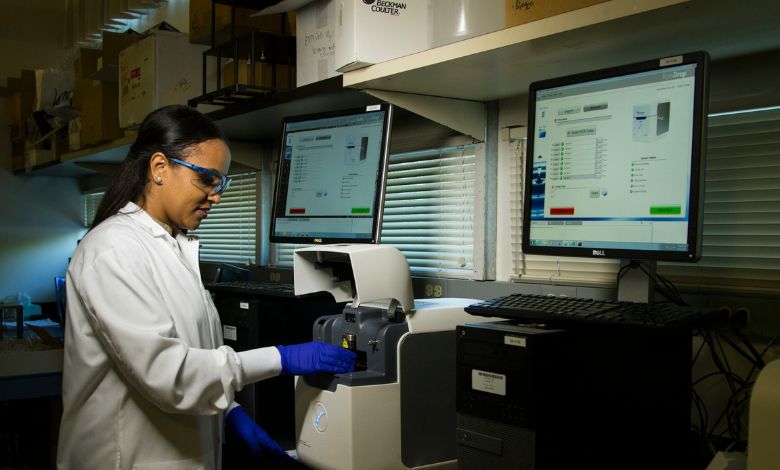
Artificial intelligence (AI) and robotics have shifted from experimental innovations to essential tools shaping everyday health care. They redefine how patients receive critical services and how clinicians deliver care. AI is now at the center of data-driven insights, analyzing medical images and patient histories with remarkable speed and accuracy to help providers craft highly personalized treatment plans.
Once limited to high-stakes surgeries, robots have become a trusted partner at the bedside, supporting rehabilitation and assisting with routine tasks. These technologies have transformed personalization from an aspirational goal into a practical reality. They give health care professionals the precision and insight to improve outcomes while elevating the patient experience.
The Rising Impact of AI in Health Care
AI adoption is accelerating across the medical sector, with hospitals and clinics embracing these tools to deliver faster, more personalized care. In the U.S., 65% of hospitals rely on predictive AI models, reflecting how quickly the technology has moved from experimental to essential.
Its strength is processing massive datasets, from imaging scans and lab results to patient histories, and then turning them into clear, actionable insights that guide clinical decisions. This capability already powers predictive diagnostics that help identify risks earlier and treatment planning that tailors therapies to individual patients. Real-time monitoring enables providers to act quickly when conditions change, raising the standard of care.
How Robotics Transforms Patient Care at the Bedside
Robotics in health care has evolved beyond the operating room, where it first gained prominence as a surgical assistant providing unmatched precision during complex procedures. Today, robotic systems impact multiple areas of medical management. These include rehabilitation devices that help patients regain mobility and elder care robots that support daily activities and provide companionship.
These technologies extend accessibility beyond specialty hospitals by reaching underserved regions where medical staff shortages limit patient support. Blending precision with consistency helps bridge critical gaps in health care delivery. It ensures more patients benefit from timely, high-quality services regardless of where they live.
Using Data and AI to Deliver Personalized Medicine
Personalized care is advancing rapidly as electronic health records, wearable devices and genomic data combine to give clinicians a clearer, more complete view of each patient. In traditional models, reaching a definitive diagnosis for medical conditions could mean multiple biopsies. This process can delay treatment by up to 90 days and increase hospital costs by as much as 80 percent.
AI-powered algorithms help overcome these challenges by analyzing health data to detect patterns, highlight risks and recommend next steps with far greater efficiency. This ability to tailor treatments to individual needs transforms how patients experience care, making it more accurate and aligned with their unique health profiles.
How AI and Robotics Empower Health Care Professionals
Concerns about automation replacing workers continue to surface. However, AI programs and robotics are becoming trusted partners that strengthen, not replace, the role of clinicians. AI systems support clinical decision-making by analyzing complex datasets, which eases the cognitive burden on providers and helps reduce burnout in high-pressure environments.
An added intelligence layer also builds patient confidence, with 40% of Americans believing AI could lower the number of mistakes health care professionals make. At the same time, robotics manages repetitive or routine tasks at the bedside, giving clinicians more time to focus on empathy, communication and the intricate cases that demand human expertise and compassion.
Enhancing the Patient Experience With AI and Robotics
AI systems and robotics create more personalized and consistent interactions throughout the care journey. AI chatbots and virtual assistants improve communication, giving patients instant access to information, reminders and guidance that help them stay on track with their treatments.
At the same time, robotics enhances bedside care by delivering medications, assisting with mobility and offering companionship in long-term medical environments where people often feel isolated. These innovations translate into measurable improvements in patient satisfaction, as individuals feel better supported and more confident in the quality of service they receive.
Challenges and Ethical Issues in AI-Driven Health Care
As AI tools and robotics become central to personalized care, they also introduce pressing challenges that leaders must navigate responsibly. Data privacy and cybersecurity remain top concerns for protecting the sensitive information fueling AI-driven insights against breaches that could undermine trust. Equity in access is another challenge, with advanced technologies often concentrated in well-funded institutions, which leaves smaller or rural facilities at risk of falling behind.
The financial impact is also significant, as unnecessary tests and treatments already cost the health care system billions yearly. This number highlights the need for AI solutions that optimize efficiency rather than add to waste. Ethical questions around transparency and accountability are equally important. Experts emphasize that human oversight must remain at the core of medical decision-making to ensure patient safety and trust.
Strategic Priorities for Health Care Decision-Makers
Setting strategic priorities means focusing on investments that make AI programming and robotics effective and sustainable. Infrastructure upgrades, interoperability across systems and workforce training ensure these technologies deliver value without disrupting care.
Regulatory compliance also requires close attention, as changing standards demand that organizations stay aligned with safety and quality expectations. Equally important is explainability. AI tools should be transparent and adapted to the comprehension levels of their intended users so that insights are actionable and trusted.
Balancing algorithmic transparency and maximum accuracy remains critical, but it must support responsible innovation. Decision-makers must commit to advancing technology to consistently protect patient trust and safety while driving measurable improvements in care.
The Future of Personalized Patient Care
Looking beyond 2025, AI systems and robotics can further push personalized medicine’s boundaries. Digital twins are emerging as powerful tools for testing treatment options and predicting outcomes before applying them in the real world. Remote robotic procedures are also gaining traction because they allow specialists to perform surgeries and interventions across great distances.
At the same time, AI-powered preventive care spots risks earlier and enables interventions before conditions escalate. These advancements point toward an era of deeper personalization, where human clinicians and intelligent machines collaborate to deliver faster and more precise services than before.
Building a Future Where AI and Robotics Define Personalized Care
AI programs and robotics are no longer futuristic add-ons but essential tools already transforming personalized medical care today. Harnessing these technologies can improve outcomes, reduce inefficiencies and elevate the patient experience. Embracing them as strategic assets ensures operational excellence and a stronger foundation for the future of medicine.




